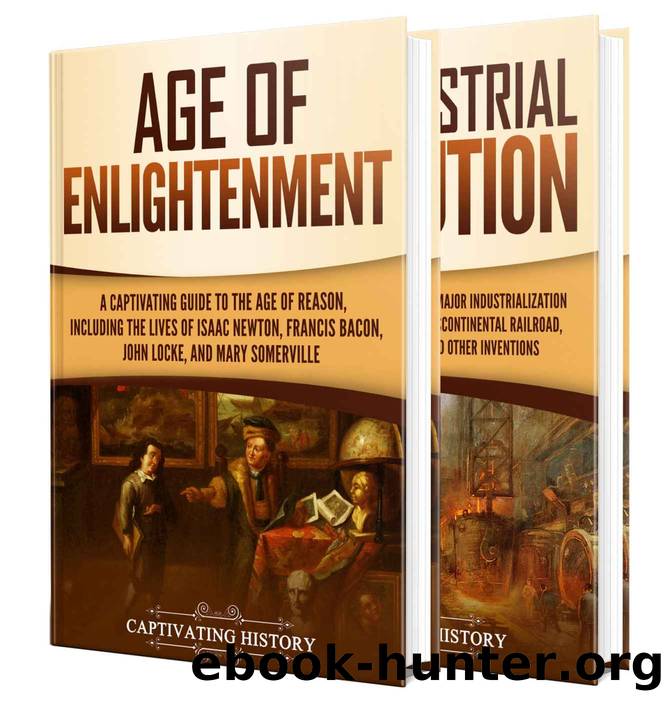The Enlightenment and Industrial Revolution: A Captivating Guide to the Age of Reason and a Period of Major Industrialization by Captivating History

Author:Captivating History [History, Captivating]
Language: eng
Format: azw3
Published: 2020-08-03T00:00:00+00:00
Modern-day English canals near Manchester (left) and British coalfields in the 19th century (right).
Source: https://commons.wikimedia.org
The main reason for the relatively low price of coal was that Britain had rich deposits, with a number of them being fairly shallow. Thus, it was available in large enough quantities, and its mining remained somewhat easy and cheap. On top of that, British coal was of high quality, increasing its value. In contrast with that, the Dutch lacked their own sources of coal, meaning they had to import it. The geopolitical situation made it unprofitable for them to switch to coal as a primary source of power when facing the same rising scarcity and cost of wood. Unlike the Brits, they turned to peat as their source of power, which proved to be much less effective than coal. Thus, Britain remained the only nation to depend on coal as its primary source of cheap energy, which, unlike wind or water, didnât rely on the weather for its efficiency. It seems that coal proved to be a crucial fuel for the Industrial Revolutionâs birth and success. Modern economic historians created simulations and calculations that show that without coal, the British economy would have eventually spiraled into a crisis, and they single coal out as the most essential aspect of the British Industrial Revolution. Even if these calculations and models are wrong, a simple comparison with other economies across the world depicts the same picture.
Nonetheless, it would be wrong to pinpoint the availability and usage of coal as the sole reason why the Industrial Revolution started in 18th-century Britain. For decades, historians have argued about which of the mentioned factors were more critical, as well as over the question of causality and correlation between them. The truth is that Britain was lucky enough to achieve a perfect storm in its economy, as all of the mentioned factors played off each other, pushing the economy along until it erupted into the Industrial Revolution.
Download
This site does not store any files on its server. We only index and link to content provided by other sites. Please contact the content providers to delete copyright contents if any and email us, we'll remove relevant links or contents immediately.
| Africa | Americas |
| Arctic & Antarctica | Asia |
| Australia & Oceania | Europe |
| Middle East | Russia |
| United States | World |
| Ancient Civilizations | Military |
| Historical Study & Educational Resources |
Magic and Divination in Early Islam by Emilie Savage-Smith;(1533)
Papillon by Henry Charrière(1433)
Bohemians, Bootleggers, Flappers, and Swells: The Best of Early Vanity Fair by Bohemians Bootleggers Flappers & Swells- The Best of Early Vanity Fair (epub)(1410)
Ambition and Desire: The Dangerous Life of Josephine Bonaparte by Kate Williams(1390)
Twelve Caesars by Mary Beard(1315)
What Really Happened: The Death of Hitler by Robert J. Hutchinson(1163)
Operation Vengeance: The Astonishing Aerial Ambush That Changed World War II by Dan Hampton(1162)
London in the Twentieth Century by Jerry White(1147)
The Japanese by Christopher Harding(1133)
Time of the Magicians by Wolfram Eilenberger(1126)
Twilight of the Gods by Ian W. Toll(1120)
Lenin: A Biography by Robert Service(1076)
The Devil You Know by Charles M. Blow(1026)
A Social History of the Media by Peter Burke & Peter Burke(977)
Freemasons for Dummies by Hodapp Christopher;(965)
Napolean Hill Collection by Napoleon Hill(943)
Henry III by David Carpenter;(919)
The Rise and Triumph of the Modern Self by Unknown(914)
Richard III (The English Monarchs Series) by Charles Ross(908)
